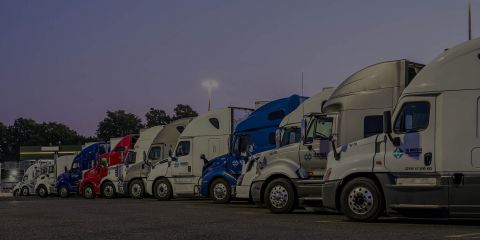2025
Highlighting the Positive Community Impacts of the Warehousing Industry in Vancouver

Vancouver’s warehousing sector plays a far greater role than many people realize. Beyond storage and distribution, local facilities connect importers, retailers, and consumers through efficient logistics networks that keep the Lower Mainland running smoothly. These warehouses also bring tangible benefits to nearby communities, from stable employment and infrastructure investment to environmental progress and emergency resilience.
How Warehousing Supports the Local Economy
Warehousing anchors Vancouver’s position as Canada’s Pacific trade hub. Facilities near the Port of Vancouver, Richmond, Delta, and Surrey handle goods that pass through Highway 1, Highway 99, and major intermodal corridors every day. Each warehouse supports hundreds of skilled jobs in logistics, quality assurance, maintenance, and packaging. Property taxes from these operations help fund city improvements such as roads, parks, and community programs.
By managing freight consolidation, cross-docking, and fulfillment in one place, warehouses reduce redundant transportation. Fewer separate shipments mean less congestion on city roads, lower emissions, and shorter travel times for carriers and commuters alike.
Core Benefits for Vancouver Communities
Beyond supporting the economy, Vancouver’s warehousing network creates everyday advantages for residents and small businesses. When freight flows efficiently, essential goods reach stores and households faster and at more consistent prices. Local suppliers gain access to reliable storage, packaging, and shipping solutions without outsourcing across provinces.
Key community benefits include:
- Improved delivery reliability for food, health, and e-commerce sectors
- Safer and less congested routes through advanced traffic coordination
- Increased sustainability through route optimization and cleaner vehicle fleets
Environmental and Social Responsibility
Many Vancouver warehouses have shifted toward greener and more socially conscious operations. Energy-efficient LED lighting, solar panels, electric forklifts, and paperless inventory systems are now standard in many facilities. Some have adopted carbon-tracking tools and recyclable packaging programs to reduce their footprint.
These efforts align closely with Metro Vancouver’s climate goals, proving that logistics can evolve without compromising community well-being.
Real-World Examples of Positive Community Impact
Vancouver’s warehousing industry benefits local residents and businesses in many practical ways. Below are three examples that show how logistics operations across the Lower Mainland contribute to a safer, cleaner, and more resilient region.
Reducing Congestion Around Key Corridors
A Richmond-based distribution center introduced off-peak delivery scheduling to minimize rush-hour truck traffic. By shipping during nighttime and early-morning windows, they reduced heavy vehicle congestion on Highway 91 and the Knight Street Bridge. The result has been fewer traffic bottlenecks and lower fuel emissions, benefiting nearby residential and commercial areas.
Supporting Local Food Security
A temperature-controlled facility near Annacis Island partners with local grocers and food producers to manage seafood, produce, and dairy logistics. During high-demand seasons, this warehouse ensures perishable goods stay fresh and reach shelves quickly. It also donates surplus stock to community food programs, directly improving food accessibility in the Lower Mainland.
Strengthening Emergency Response Capacity
When storms or wildfires disrupt supply chains, Delta and Surrey warehouses act as emergency distribution points. During the 2021 floods, several local facilities repurposed loading bays to store relief supplies and medical goods, keeping critical items available for affected neighborhoods. This rapid adaptability demonstrates how local logistics infrastructure serves as a vital community asset in times of crisis.
Warehouses Will Remain A Positive Force for Vancouver’s Future
As Vancouver continues to grow, the warehousing industry will remain one of the city’s most important economic and logistical foundations. These facilities connect regional producers, retailers, and consumers through efficient supply chains that keep daily life running.
Warehouses create local employment, support public infrastructure, and maintain reliable access to essential goods. They also drive environmental progress by adopting electric equipment, solar power, and data-driven logistics to reduce emissions and resource use. In a region facing rising population and trade volumes, this efficiency helps ease pressure on roads, ports, and city systems.
Vancouver’s future growth depends on smart infrastructure, coordinated transport, and sustainable industry. Warehousing sits at the intersection of all three, making it a quiet but essential force that strengthens the city’s economy and quality of life.
Based in Vancouver, British Columbia, Canada, 18 Wheels relies on experience and integrity to make customers happy and remain on the cutting edge of shipping and logistics management.
If you have any questions about this article or you would like to talk to us about your shipping needs, please call us at (604) 439-8938.
